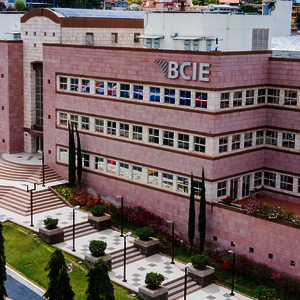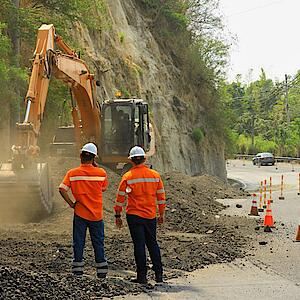Freight train studies in Guatemala progressing steadily with CABEI and Korean support

Progress of the pre-feasibility study reveals the prioritized railroad line, with a length of 274 kilometers from Tecún Umán to the capital city.
Guatemala City, Guatemala, June 1, 2021.- The freight railroad route prioritized for the "Guatemalan Segment of Railroad Connection in Central America" project will be the Tecún Umán-Guatemala City line, with a length of 274 kilometers, comprising three sections: Tecún Umán-Mazatenango, Mazatenango-Santa María and Santa María-Guatemala City.
This was announced at the mid-term seminar held between the Central American Bank for Economic Integration (CABEI), the Republic of Korea, the Ministry of Public Finance (MINFIN) and Ferrocarriles de Guatemala (FEGUA), in which the progress of the project's pre-feasibility study was presented.
"The implementation of this rail freight connection project in Central America is of utmost importance, not only for Guatemala, but for the entire region considering the objective of integration in rail mobility processes that CABEI is promoting as one of its highest priorities. Undoubtedly, the Korean experience in this area will ensure the optimal structuring of the project," CABEI Executive President, Dr. Dante Mossi.
Álvaro González Ricci, Minister of Public Finance of Guatemala, commented: "This freight railroad project is undoubtedly a high priority for our government and it is important to point out that its development will have the full support of the institutions involved.
The seminar presented the phases of the Construction Plan for the Freight Railroad in Guatemala, which are based on the analysis of the main logistical axes and freight trips at the national level. An analysis of the current situation of the country's railroad infrastructure and its main challenges, the demand for domestic and cross-border cargo transportation, and the technical specifications required for railroad infrastructure were also presented.
The studies are funded by the Korea Knowledge Sharing Program in the amount of US$466,900, and the preliminary results of the studies were presented by the Export-Import Bank (Korea Eximbank) as project implementer, and the contracted consulting firm Korea Engineering Consultant Corp. Consortium.
The Republic of Korea shared its experiences in the development of rail network infrastructure and the good practices derived from the process, such as the importance of having national policies and institutional instruments that enable its development and the adoption of clean and intelligent technologies, among others.



